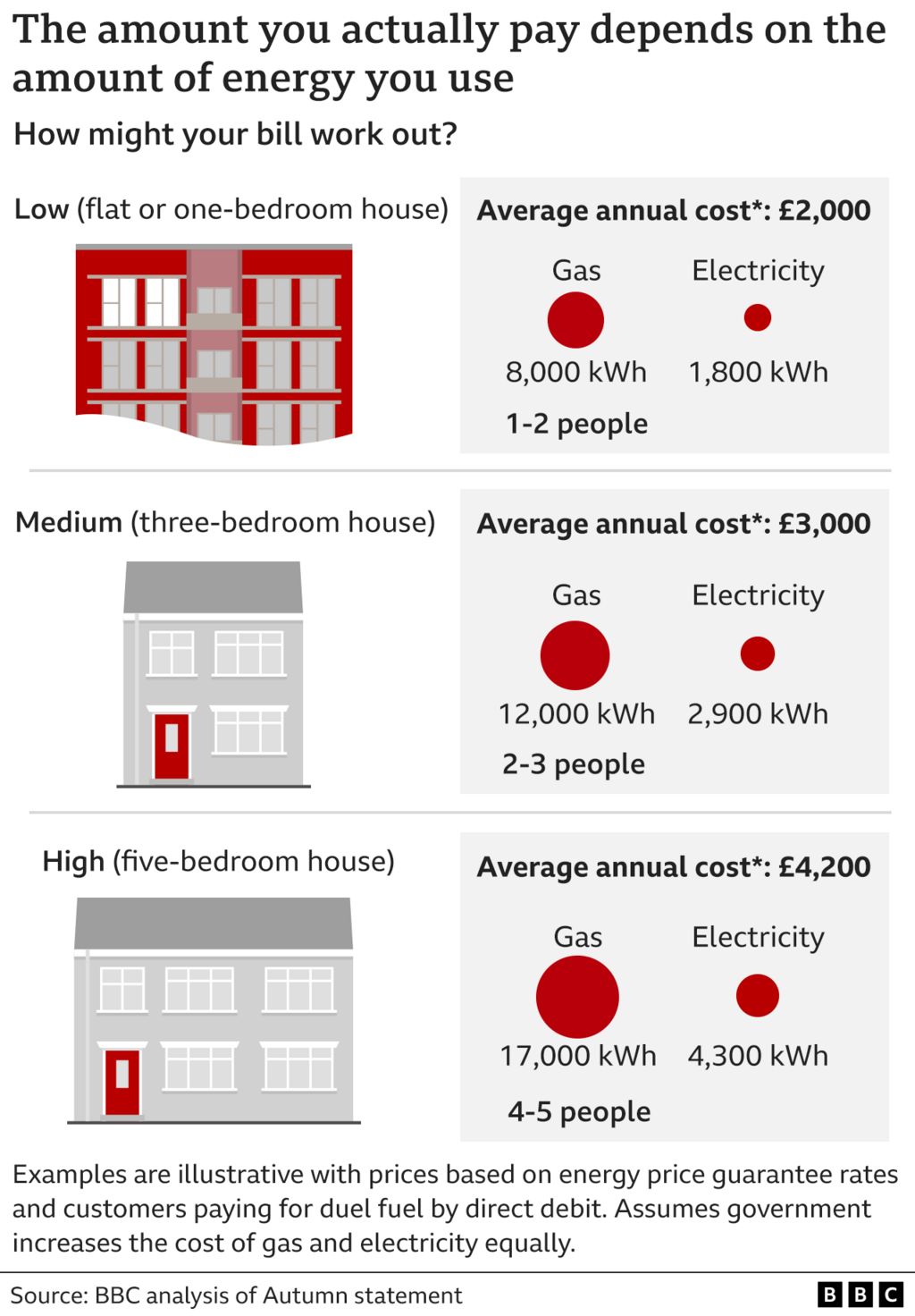April will see an increase in the average domestic energy bill, but forecasts of future decreases could bring back competition and lead to customer switching.
The average annual gas and electricity bill for a home is currently limited to £2,500 with an additional £400 discount thanks to a government guarantee.
The limit will increase to £3,000 in April, but based on projections, it will soon no longer be necessary.
A typical bill will return to £2,153 in July, according to analysts at Cornwall Insight.
The energy consultancy anticipates that average household annual bills will stay roughly at that level for the remainder of the year.
Although the tumbling cap projections are encouraging, Craig Lowrey, principal consultant at Cornwall Insight, lamented that the benefit would be minimal for already stretched households before July.
He did, however, assert that the circumstances later in the year might result in "the return of competitive tariffs," which would give consumers the opportunity to "take back some control over their energy bills.".
Investec, a financial services company, also made predictions that are very similar to those of Cornwall Insight, noting that the declines mean that overall government subsidies for energy bills will be less expensive than anticipated.
Campaigners and consumer advocacy organizations have urged ministers to use the savings to support billpayers even more. A three-month extension of the current government guarantee has also been requested by the Labour Party.
It has been hoped that the worst of the energy crisis may be passing after a sharp decline in wholesale gas and electricity prices in recent weeks.
In the UK, the vast majority of homes have a variable or default gas and electricity tariff. The energy regulator Ofgem has set a price cap on energy in England, Wales, and Scotland at a level it deems appropriate. Every three months, the limit is adjusted.
A household using a typical amount of gas and electricity would have had to start paying £4,279 annually at the beginning of January due to the enormous costs suppliers faced.
The government intervened to help people all over the UK by paying for a portion of that expense. Due to its Energy Price Guarantee (EPG), the average household currently pays £2,500 annually; however, in April, that amount will increase to £3,000 annually.
Compared to the bills people were used to, that is still a significant increase. The average annual bill was £1,277 in the winter of 2021–2022 and customers frequently changed suppliers in search of better fixed-price offers.
Extra payments for the cost of living are primarily meant to assist the more vulnerable with these higher costs.

According to Cornwall Insight, a typical household's annual bill in April would be £3,295 without an EPG. Investec estimated it at £3,332.
The oversight organization Ofgem will release the precise figure on Monday.
Due to the EPG, which caps their costs, for households, this will be largely irrelevant. However, it is significant in terms of how much the government must pay in order to compensate suppliers by capping domestic bills, and ultimately how much of that cost falls on taxpayers.
According to Cornwall Insight, the estimated cost to the government if the EPG were to rise to £3,000 as planned would be £26.8bn. The estimated price would be £29.5 billion if it stayed at that level.
The government would decide whether to abandon plans to raise the EPG limit to £3,000 at the Budget presentation scheduled for next month. However, earlier this month, Chancellor Jeremy Hunt told the BBC that it was unlikely that households would receive additional assistance with energy costs starting in April.
Although he acknowledged that the Treasury kept every form of assistance "under review," he opined that the government lacked the "headroom to launch a significant new initiative to assist people.".
Martin Lewis, a consumer finance expert, claimed that approving the bill increase in April would be a "national act of harm," and several poverty relief organizations agreed with him.







